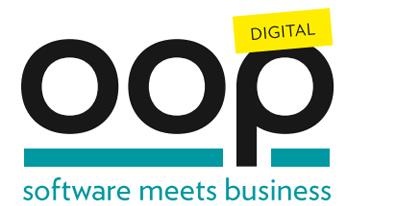
Conference Program
Please note:
On this site, there is only displayed the English speaking sessions of the OOP 2022 Digital. You can find all conference sessions, including the German speaking ones, here.
The times given in the conference program of OOP 2022 Digital correspond to Central European Time (CET).
By clicking on "EVENT MERKEN" within the lecture descriptions you can arrange your own schedule. You can view your schedule at any time using the icon in the upper right corner.
Structured Test Design and Condition-Oriented Test Case Design with ECT And MCDC
Test case design is one of the core competences of the testing profession. This tutorial is about an effective and elegant technique that is still too little known.
After an overview presentation of test design using coverage-based test design techniques and experience-based test approaches, this tutorial addresses one of the (seemingly) harder techniques from the condition-oriented group of coverage-based test design techniques, the Elementary Comparison Test (ECT) that uses Modified Condition Decision Coverage (MCDC).
Target Audience: Quality Engineers, Test Engineers, Developers
Prerequisites: General knowledge of IT delivery, quality engineering and testing
Level: Advanced
Extended Abstract
Test case design is one of the core competences of the testing profession.
Which test design techniques do you use? And is this effective and efficient?
In the TMAP body of knowledge we distinguish 4 main groups of test design techniques: Process-oriented (such as path testing), Condition-oriented (such as decision table testing), Data-oriented (such as Data Combination test) and Appearance-oriented (such as Syntactic testing and performance testing).
After an overview presentation of test design using coverage-based test design techniques and experience-based test approaches, this tutorial addresses one of the (seemingly) harder techniques from the condition-oriented group of coverage-based test design techniques, the Elementary Comparison Test that uses Modified Condition Decision Coverage.
Suppose you must test the entry-check of the new Wuthering Heights Rollercoaster in the QualityLand amusement park. Every person must be at least 120 cm tall to be allowed in the rollercoaster. What technique would you use? Boundary Value Analysis (from the group data-oriented testing), right? That’s not a tough choice.
But now the marketing department of QualityLand has a special offer for Halloween. To be allowed with the special discount-rate, a person must still be at least 120 cm tall, but must also wear a Halloween outfit and needs to be at the gate on 31 October (that’s a decision with 3 conditions). On top of this, if the person has bought a ticket online, and paid 10% extra, they may skip the line (that’s another decision, with 2 conditions).
So, all in all you have 2 decision points, with together 5 conditions.
Now what test case design technique do you use?
In the above example (with 5 conditions) choose a condition-oriented test design technique. But which? Probably you know Decision Table Testing. Applying this technique would lead to 2-to-the-power-of-5 = 32 test cases. That’s a bit too much to call this an efficient test set.
My advice is to use the Elementary Comparison Test (ECT) design technique, together with Modified Condition Decision Coverage (MCDC). This way, with only 6 (!!) test cases you can guarantee that EVERY condition has contributed to trigger EVERY outcome of the entry-check of the rollercoaster. So, it is both effective and efficient!
Have you never heard of ECT before? Well, even though it exists for decades, I can imagine, because ISTQB doesn’t teach you this. But is has been part of the TMAP body of knowledge since 1995 :-)
This HUSTEF conference you will get your chance to learn all about ECT & MCDC!!
Join me in this half-day or full-day tutorial and I will make sure that you will get hands-on experience.
Rik Marselis is principal quality consultant at Sogeti in the Netherlands. He is a well-appreciated presenter, trainer, author, consultant, and coach in the world of quality engineering. His presentations are always appreciated for their liveliness, his ability to keep the talks serious but light, and his use of practical examples with humorous comparisons.
Rik is a trainer for test design techniques for over 15 years.
Mehr Inhalte dieses Speakers? Schaut doch mal bei sigs.de vorbei: https://www.sigs.de/autor/rik.marselis
Vortrag Teilen

